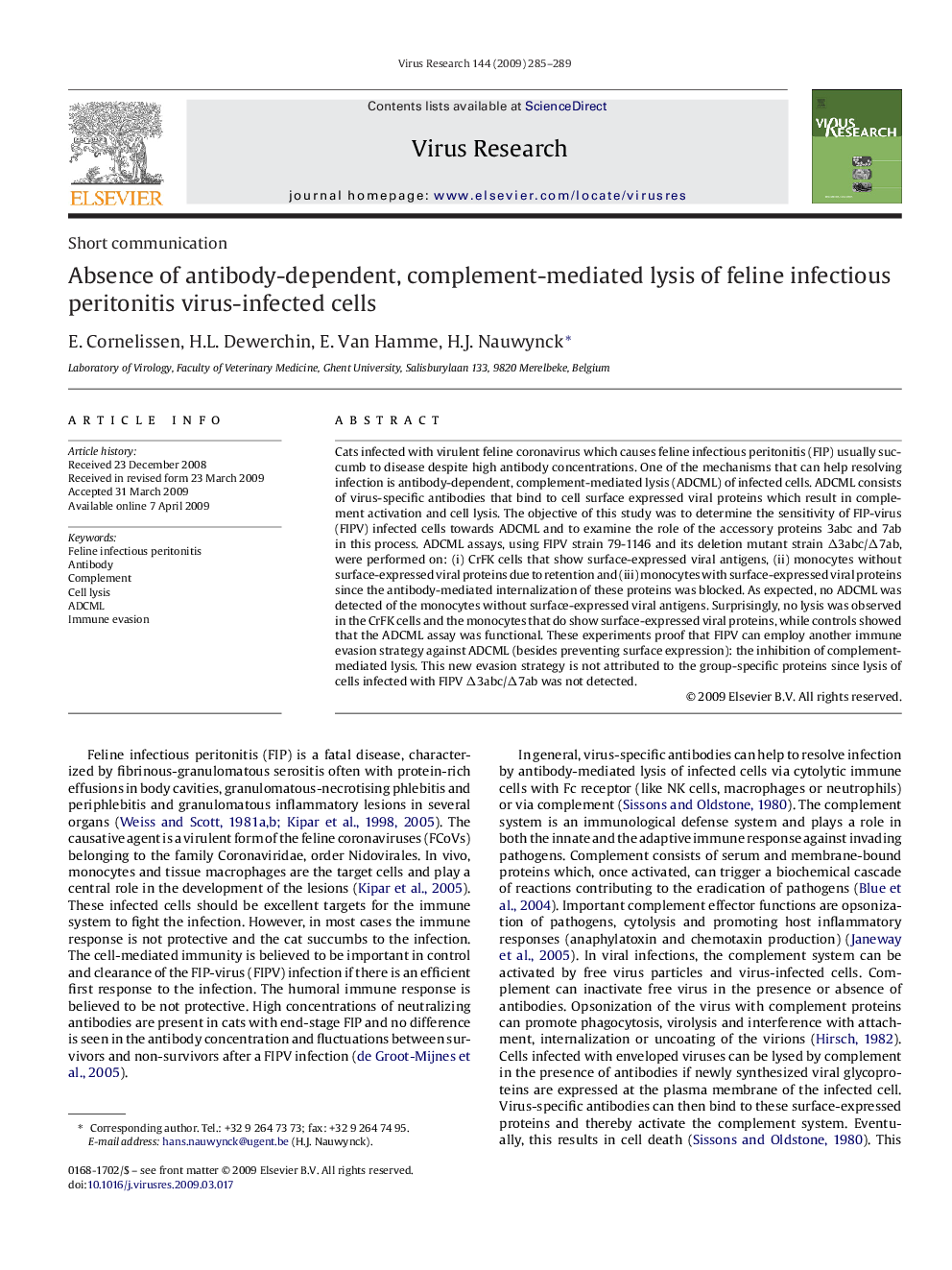| Article ID | Journal | Published Year | Pages | File Type |
|---|---|---|---|---|
| 3429688 | Virus Research | 2009 | 5 Pages |
Cats infected with virulent feline coronavirus which causes feline infectious peritonitis (FIP) usually succumb to disease despite high antibody concentrations. One of the mechanisms that can help resolving infection is antibody-dependent, complement-mediated lysis (ADCML) of infected cells. ADCML consists of virus-specific antibodies that bind to cell surface expressed viral proteins which result in complement activation and cell lysis. The objective of this study was to determine the sensitivity of FIP-virus (FIPV) infected cells towards ADCML and to examine the role of the accessory proteins 3abc and 7ab in this process. ADCML assays, using FIPV strain 79-1146 and its deletion mutant strain Δ3abc/Δ7ab, were performed on: (i) CrFK cells that show surface-expressed viral antigens, (ii) monocytes without surface-expressed viral proteins due to retention and (iii) monocytes with surface-expressed viral proteins since the antibody-mediated internalization of these proteins was blocked. As expected, no ADCML was detected of the monocytes without surface-expressed viral antigens. Surprisingly, no lysis was observed in the CrFK cells and the monocytes that do show surface-expressed viral proteins, while controls showed that the ADCML assay was functional. These experiments proof that FIPV can employ another immune evasion strategy against ADCML (besides preventing surface expression): the inhibition of complement-mediated lysis. This new evasion strategy is not attributed to the group-specific proteins since lysis of cells infected with FIPV Δ3abc/Δ7ab was not detected.
